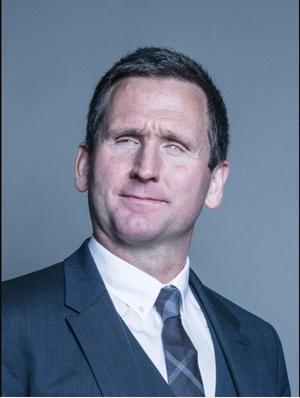Lord Holmes of Richmond MBE: It’s time we think of ESG, not as environmental, social and governance.
It’s time we think of ESG, not as environmental, social and governance but as existential, seismic and global.
Climate change is one of the most serious challenges we face. The threat is existential, the action required is seismic and the need for solutions global.
Last month at COP26 the Chancellor announced that the UK will become “the world’s first net-zero aligned financial centres” and more broadly the Government has published a Net Zero strategy that sets out our commitment to reach net-zero emissions by 2050. The House of Lords Science and Technology Committee, of which I am a member, is conducting a series of inquiries into policy areas such as fuel cell and battery technology and nature based solutions that will assist in reaching that commitment. The climate emergency is rightly at the top of all parliamentarians and policymakers agendas. But the climate emergency should be at the top of all our agendas.
This is as critical for the tech and finance industries as it is for politicians. I was on another green finance panel earlier in the year when a speaker said this is not just a fintech issue it’s a business issue. Correct, and the good news is that, while we do need greater action from Government, action from businesses and consumers also hold incredible potential. Twenty times more environmental impact can be achieved by moving savings, pensions and investments to green products rather than some of the lifestyle changes we are advised to make. Pair that statistic with the fact that 70 per cent of retail consumers want to avoid harm and achieve good in investment and there is a real cause for a sustainable investments label or kitemark of some kind. There are already some excellent products out there, digital ESG solutions, green digital bonds, green roboadviser but enabling consumers will be key. Increasing knowledge is important but incentives are best when attempting to ‘nudge’ behaviour change.
Also, at COP26, over 450 of the world’s banks committed to a new initiative designed to decarbonise their investments. Overseen by the former head of the Bank of England Mark Carney, the banks and other financial institutions signing up to Gfanz (the Glasgow Financial Alliance for Net Zero) are pledging to report annually on the carbon emissions linked to the projects they lend to.
They are also aiming to provide trillions of dollars in green finance while committing to net zero emissions across the board by 2050.
This is all movement in the right direction but we need the right regulatory framework. The UK has a proud record in creating a regulatory regime that promotes innovation and has led the world in fintech development with initiatives like the FCA sandbox and Level 39. The Kalifa Review published earlier this year also pointed out the need for the governments and regulators to better use fintech to meet their own ESG requirements. The UK can establish a lead in green finance by continuing to lead on regulation and standard setting globally but we need the right political signals, a standardised taxonomy, possibly state backed venture funds.
ESG as existential, seismic and global should enter all our lexicons and be at the forefront of our mind as we legislate, regulate, do business, lend, invest, or plan our pensions. It is for all of us to commit, it is essential.

This article was written by Lord Holmes of Richmond MBE. Chris is a passionate advocate for the potential of technology and the benefits of diversity and inclusion. He campaigns for more accessible environments for disabled people and has conducted an independent review for the Government that made recommendations on opening up public appointments to disabled people. Learn more about this author here.
To read more from #TechGreenFinance Week check out our landing page here.
You can also follow the campaign on techUK's Twitter and LinkedIn - #TechGreenFinance.


